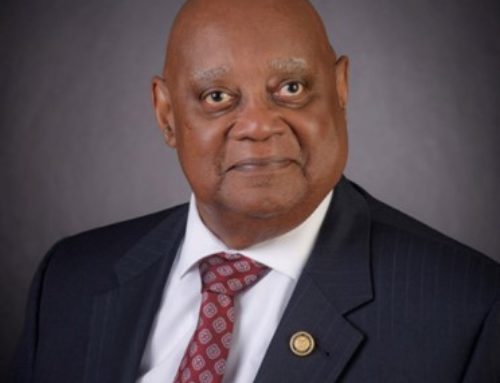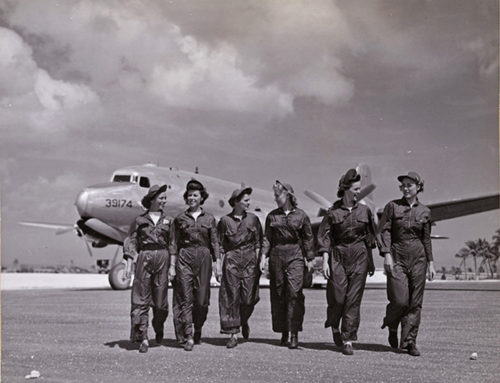 In May of 1983, Pete Tzomes made history by becoming the first African American to command a submarine. His journey to the submarine force was like many others. Inspired by a midshipman who visited his middle school, Tzomes set his sights on the Navy after graduation. However, this was the late 50’s, and Tzomes was discouraged from his preferred career choice. At that time, African Americans were not lining the halls of the Naval Academy. Becoming a Naval officer was so unheard of that his guidance counselor advised him to think of a different career choice. After not receiving an appointment to the academy in his senior year of high school, Tzomes enrolled in Oneonta State University, and took the test a second time. Due to his excellent grades, he was selected to attend as a qualified alternate.
In May of 1983, Pete Tzomes made history by becoming the first African American to command a submarine. His journey to the submarine force was like many others. Inspired by a midshipman who visited his middle school, Tzomes set his sights on the Navy after graduation. However, this was the late 50’s, and Tzomes was discouraged from his preferred career choice. At that time, African Americans were not lining the halls of the Naval Academy. Becoming a Naval officer was so unheard of that his guidance counselor advised him to think of a different career choice. After not receiving an appointment to the academy in his senior year of high school, Tzomes enrolled in Oneonta State University, and took the test a second time. Due to his excellent grades, he was selected to attend as a qualified alternate.

https://www.army.mil/e2/c/images/2015/02/26/383249/size0.jpg
It was in 1963 that the civil rights movement was hitting its peak. It was the year of Dr. Martlin Luther King Jr and the march on Washington. Riots were exploding across the country demanding justice and racial equality. 1963 was also the year that Pete Tzomes began his career at the U.S. Naval Academy. Wanting to become a Marine pilot, it was not race that would stand in his way, but rather his height. Too short to enter the pilot program, Tzomes applied for the nuclear power program. He became the second African American accepted and the first in submarines.
Tzomes recalls his first submarine and the subject of race. He says that, “On my first submarine there were two blacks, a first-class steward and a first class torpedoman. They looked at me with pride. You could see it in the way they interacted with me. They were proud that there was a black officer that they can call ‘sir.” After serving aboard submarines for a few years, he began to appreciate his decision to become a submariner. Serving aboard multiple ships and several special ops missions, he set his sights on being able to command a fast attack submarine. He knew what achieving that goal would mean. He was well aware that he would be the first and what that meant for the future of African Americans in the submarine force. However, race was not what truly drove him. He wanted to command a fast attack. He wanted to be the one in charge. It just so happened that he was black. In November of 1979, he reported to the USS Cavalla, as an executive officer. He served about her for three years, knowing that a good tour could land him his dream position.
In 1983, Tzomes became the commanding officer of the USS Houston. When the ship switched homeports and moved to San Diego, he recalls the hero’s welcome he received. “I’ll never forget, it was 9 or 10 o’clock at night. I was just beaming. There were several folks from the black community in San Diego that made it a point. They were on the waterfront to greet me. It’s kind of hard to describe. That just made me feel special.”
Word of Tzomes’ command spread, inspiring young black sailors to reach for their highest potentials. As the centennial of the submarine force grew close, the group of commanding officers had grown. There were now seven. Seven men who did not let race define them or their careers. Seven men who saw themselves not as black commanding officers but commanding officers who had done something special. It was this realization that led to the phrase “centennial seven” to describe the men who had achieved something great. Joining Tzomes in the honor are Rear Adm. Bruce Grooms, Rear Adm. Tony Watson, Capt. Will Bundy, Vice Adm. Mel Williams, Capt. Joe Peterson, and Adm. Cecil Haney. Today, the seven first African American commanding officers take time out of their schedules to mentor young sailors and inspire them. While the submarine force has come a long way from the 1963 service that Tzomes entered into, there is always room for growth. However, Tzomes points out it is important to see just how far they have come and to be extremely proud of it.

BALTIMORE (Feb. 21, 2009) Members of the Navy’s Centennial Seven pose with U.S. Naval Academy midshipmen. Capt. Pete Tzomes, left, Rear Adm. Tony Watson, Capt. Will Bundy, Vice Adm. Mel Williams, Capt. Bill Peterson, Rear Adm. Cecil Haney, Rear Adm. Bruce Grooms, Cmdr. Rich Bryant, Cmdr. Roger Isom. (U.S. Navy photo by Lt. Karen Eifert/Released)
As stories are shared this Black History Month, it’s important to remember just how far we have come and share the stories of those who paved the way. Without them and their courage and perseverance, things may have taken a lot longer to change.




